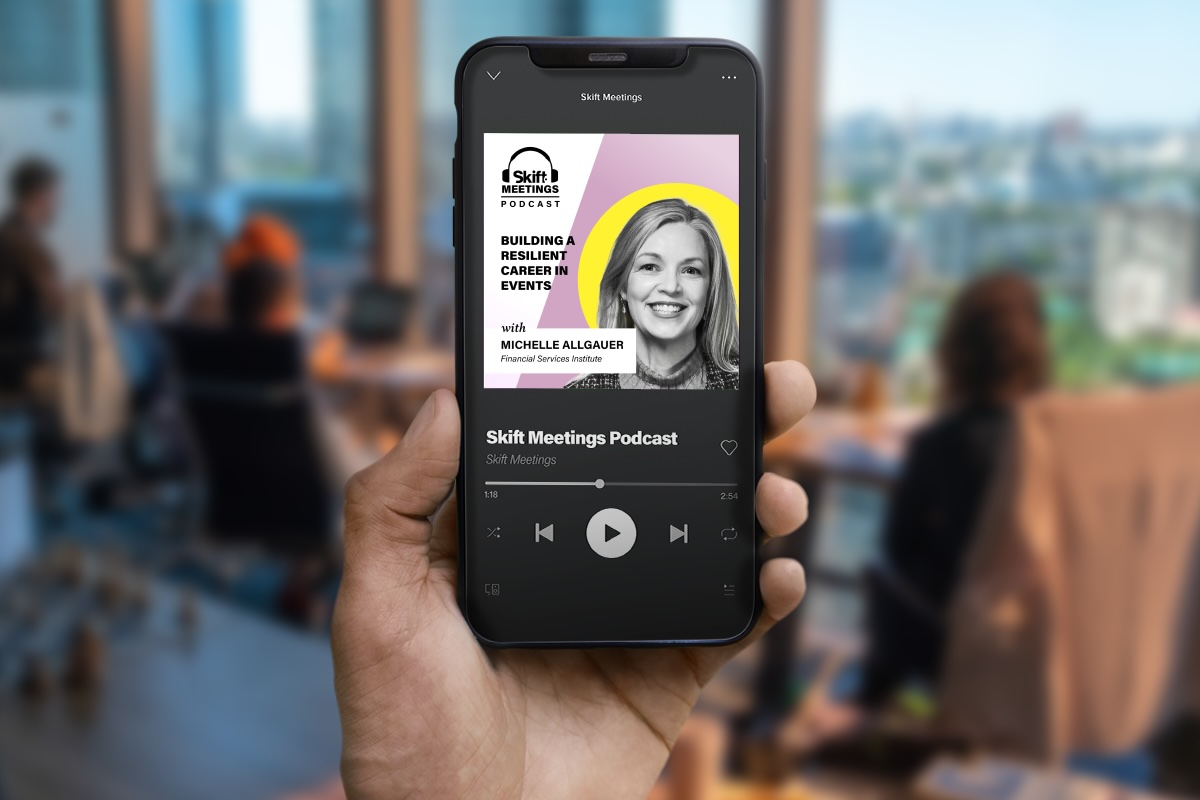Skift Take
Ever wish you didn’t have to put up with annoying phone call interruptions and making cold calls? It is possible. Here are some suggestions on how event planners can effectively minimize the distraction without impairing communication and sales.
Every productivity guru will tell you to minimize distractions if you want to get things done. Often articles written about this topic suggest you should close your social media profiles and ignore email. Close them and check them twice a day is what many experts advise you to do. That’s all well and good but what can you do when it’s your phone that provides the distraction? From its incessant ringing to the necessity of spending a good portion of your day trying to arrange new business on the phone, it’s a distractor you don’t need.
But a phone is essential to an event planning business. Isn’t it?
Maybe not.
How to Minimize the Use of The Phone in Your Event Planning Business
Let’s be clear. Phones are helpful little objects but the amount of time you can lose from long-winded clients telling you about their very long days and other troubles will do nothing for your business. If you hate the phone or you’ve tried every other way to maximize your efficiency and you’re still struggling, the problem may be those constant interruptions and clients who want to talk on and on. Here’s how you can manage both without sacrificing your communication.
This Must Be a Swap
You can’t give up your phone, text messaging, and emails and still be successful. Clients and potentials must have a way to contact you. Decide which one is your favorite and add that first to all communications and marketing collaterals.
Cold Calls Are Zombies. Kill Them.
It’s easy to hate making outgoing sales calls but now there’s reason to believe they’re also ineffective. Completely cold calls, with no previous contact are akin to shouting into space these days, so ditch them. Some people still believe they work but they are still a time drain. What you need nowadays to land a sale is to establish know, like, and trust and it’s hard to do that over a ten-minute call.
Nurture Warm Leads
If the calls you dread making are warm leads that have shown some interest, don’t waste your time until they’re ready to make a decision. But don’t leave them to their own devices either. Place them on a nurture campaign by adding them to a weekly or monthly newsletter or summary of blog posts. Follow them on social media. Provide potential clients with content that helps them make an informed decision to choose you as their next event planner. This keeps them engaged and thinking of you until they are ready to host an event.
If you’re not blogging or sending out newsletters, place a tickler in your file system to contact them via email with a URL, video, or article you think they will find value in. This content could be about something you discussed with them in the past or something they were curious about. Don’t ask for the sale. Simply be there and be helpful… often. When they need you, they’ll reach out. Plus, all of this can be automated so as not to interrupt your day.
Know Your Clients
You must know the market you serve. If you work mainly with people above 55, they prefer to pick up the phone because they believe it’s easier than typing out a question and sending it on email or text. That’s not to say you can’t “train” them to contact you another way, but it will be harder.
Work the Workarounds
In order to move away from the phone, you need to ensure other forms of communication are working well. To do this you must:
- Make sure your Contact Me form on your website works well and is easy to find. If it’s hard or cumbersome to use, people will just call you.
- Add a Schedule a Call button on your website that links directly to your availability so you don’t need to go back and forth between emails to find a time that works for both of you. You can use an online booking program such as YouCanBook.me.
- Use auto-messages on your smartphone to answer calls you can’t take at that moment.
- Personalize your voicemail and refresh the greetings often. Some people do it every day so that callers feel like there’s a human at the other end. You can even use messages like, “I am at an all-day site visitation. I will call you back this evening.” If you choose to do this, you can’t leave this message on every day and you must call them back like you said you would.
Employ a Virtual Assistant
Some clients just need to hear a voice. If that’s the case of your clients, employ a virtual assistant to answer your calls and take a message. S/he can then email you your messages and you can peruse them when you have a moment.
Create Online Forms
If there are basic discovery calls you do or calls you make on a regular basis that could be handled by creating a form your clients could access online or through email, do so. For instance, if you do a call at the beginning of each client onboarding where you ask the same questions, consider placing the questions in a form instead. Many forms allow for you to attach instructions or you could create a video to walk people through filling it out.
Treat Your Website As an Employee
Many people visit websites long before they call to ask for information about your company. That’s why you need to ensure your website provides them with the information they’re looking for quickly and easily. User experience is key here. Your website is minding the “store” and must represent you well and professionally. If you want to do less cold calling, you need a website that works as hard as an employee in answering questions and solving problems.
Kill Two Birds
If you owe your client a call, look for times you can multitask and get two things done at once. For example, if you are doing a venue visit for them and you owe them a call, use Skype or another video call platform, and make the call from the site visit. There are also video messaging platforms where you can create a video message that your client can view later. These video options create a much more friendly communication than just email and they may placate your clients who love hearing a voice.
Use a Chatbot or Virtual Concierge
Okay, this is certainly not your least expensive option on this list but it can help you answer clients’ and prospects’ questions when you’re not available to take their call. Virtual concierges can live on your site or through text and can answer many of the questions you get asked over and over. Plus, clients have been trained by the likes of Apple, Amazon, Microsoft, and Google to use them. Hospitality, recruiting, and medical professions are even starting to use them. If you employ them for events, you can give your clients a sneak peek as to what that chatbot could look like for their conference or meeting.
Train Your Clients
Your clients don’t know you hate the phone and frankly, may be a little turned off if you tell them directly. Plus, if you think about it, it’s probably not the phone you hate. They are handy little things. It’s the interruption. You can minimize the interruption by “training” your clients to commit to scheduled calls instead. When they email you because they want to talk about their event, don’t pick up the phone and call them immediately unless you want that to be the new expectation. Instead, ask them what day and time are good for them in order to touch base and schedule something.
In Conclusion
While communication is important to every good business, interruptions are not. If you find yourself losing a lot of time during the day because of lengthy phone calls that could’ve been handled over email, or the interruption of calls ruins your ability to concentrate, it’s time to do something about it. You needn’t get rid of your phone but you do need to learn how to control it better. Make it a tool for effective communication, not a distraction from what must get done.
In 2017, sales aren’t solely made over the phone either. Many people do their research before approaching a salesperson or event professional. That’s why your website and content distribution strategy are so important. Your time is better used nurturing potential leads than chasing them.
What do you think? Could you use a little vacation from disruptive phone calls? Could you run your business without your phone?





